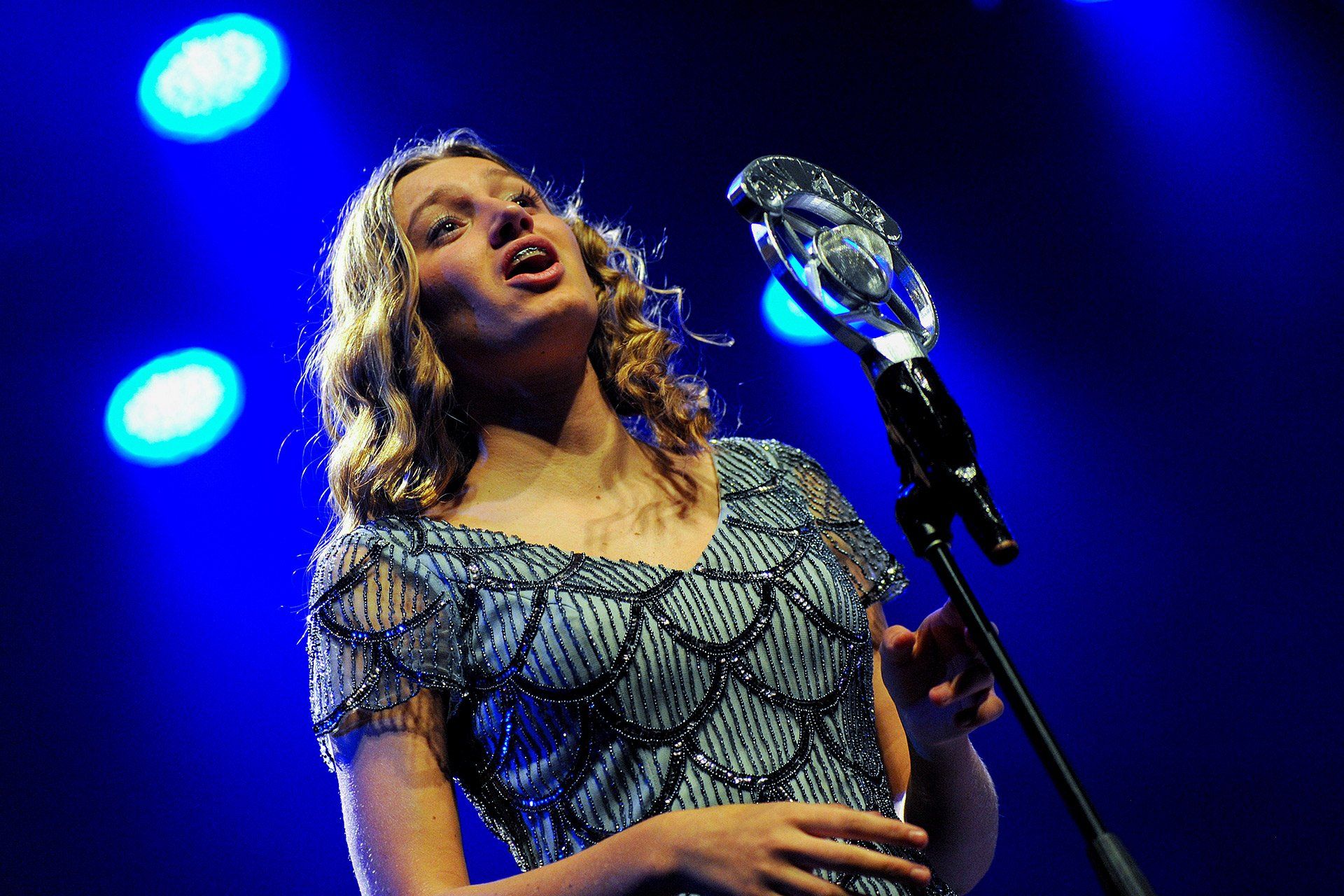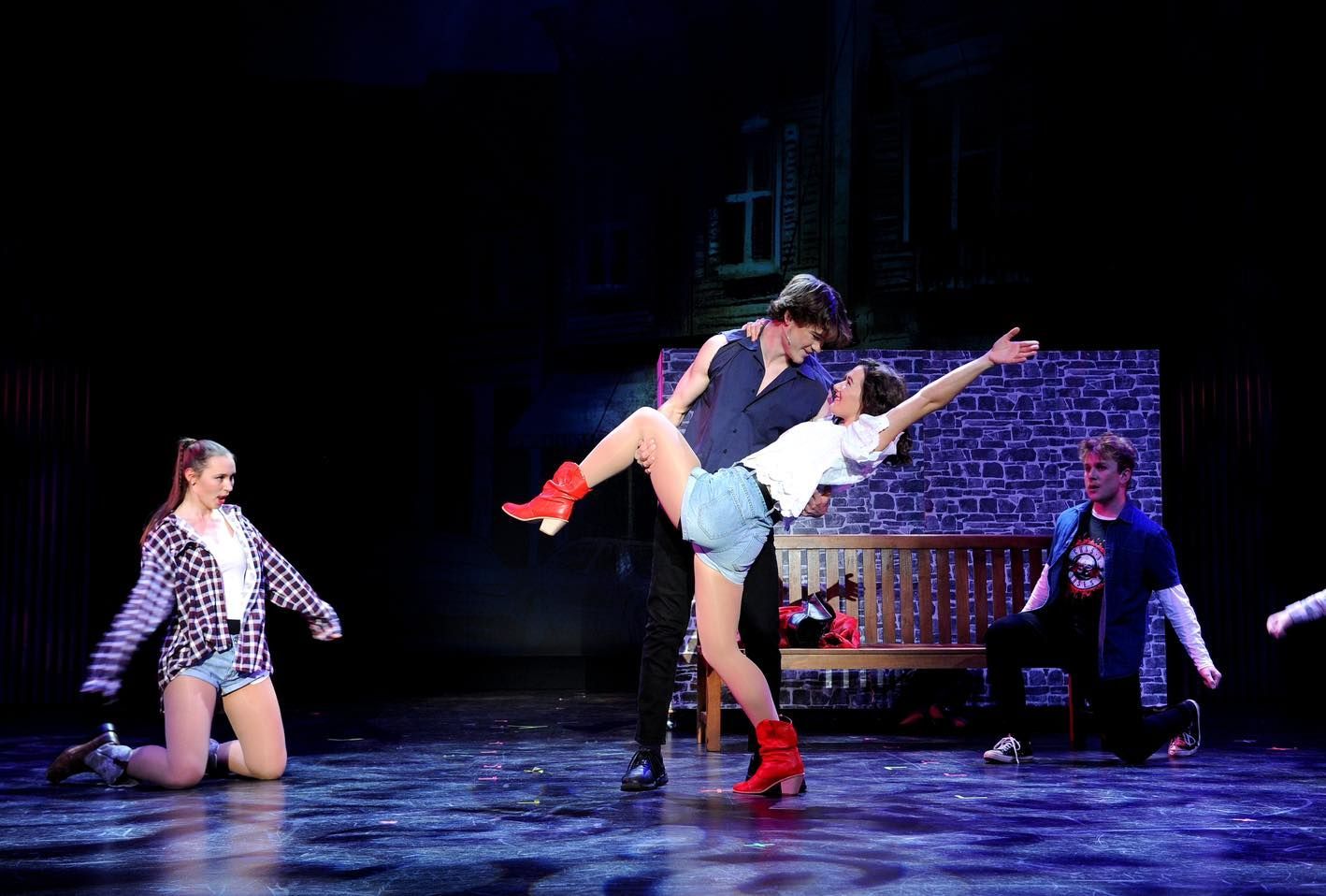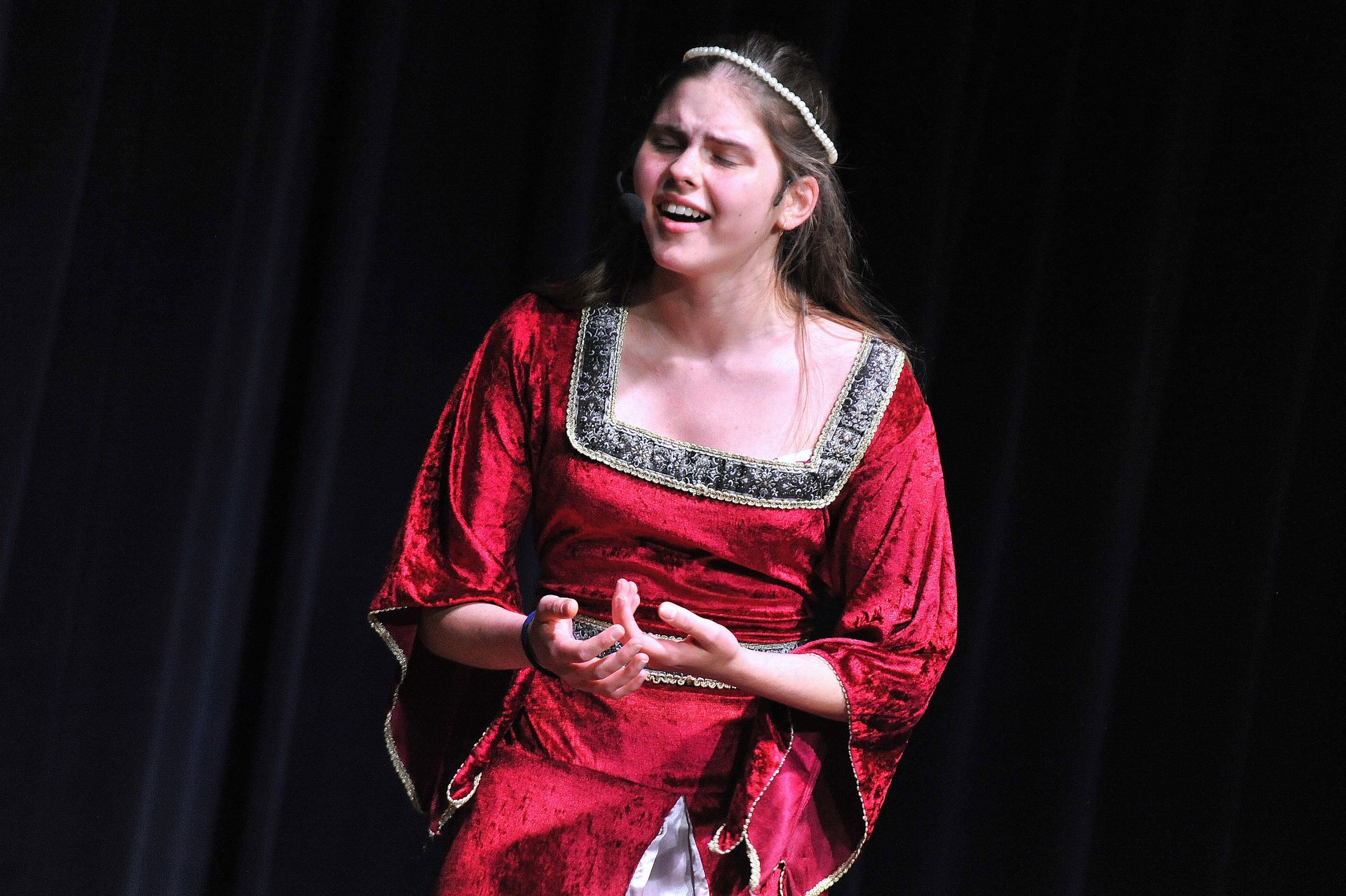Contact | My Fairholme | 🔎︎

Drama
at Fairholme
Button
Drama
Drama is an engaging medium which nurtures each student’s artistic qualities, and extends and challenges them intellectually, emotionally and physically.
The two strands of the Australian Curriculum: The Arts, are Making and Responding. Making refers to drawing on a variety of skills, techniques and processes to create and then share the drama.
Responding is the ability to reflect on the sharing of drama works from an audience’s perspective or as the creator of the work. Students learn of the social or cultural perspective and develop the ability to communicate dramatic action and meaning either from the audience’s perspective or the artist’s perspective.
All Fairholme College students in Years 7 and 8 study a semester of Performance and Drama. From Years 9 to 12, Drama is offered as an elective subject. Our rich co-curricular program provides a vast range of additional opportunities for students to further develop creatively, socially and personally.
Year 7 Performance
In Performance, students make choices about what the roles and relationships are, and what the context of the role play is. They are introduced to improvisation, a spontaneous enactment in which they take on roles and relationships to create a situation, which is shared with their peers.
A community based Process Drama focusses on considering how cultures distinguish themselves, and the second unit of work directly addresses and develops intercultural and ethical understanding of the Stolen Generations. Students create meaning through the use of speech, movement, gestures and body language to tell stories and convey qualities about character and situation.
Year 8
Each student studies Drama for one semester in Year 8. They learn to manage, explore and develop dramatic action through Making and Responding to drama.
They focus first on a published playtext and its filmed performance by a theatre company. Playmaking requires that students shape and present scenework for their peers, consistent with the play’s character, situation, style and themes.
Students have the opportunity to focus on dramatic meaning, themes and theatrical style by responding to the work of others.
Participation in a Process Drama allows students to observe a number of different dramatic elements in the work, such as: the use of space; the actor’s voice and movement skills; the development of tension throughout the work; as well as the way that place, time, mood and symbol are developed in the piece to create dramatic meaning.
Year 9
In Years 9 to 12, Drama is an elective subject. Students make and share drama as they develop, rehearse and present dramatic action. They respond to and interpret drama, applying and analysing the dramatic languages and dramatic conventions.
The commonly accepted techniques associated with various forms, styles and traditions of drama are examined critically in energetic, enriching experiences including scenework, performance and play analysis.
Understanding of vocal qualities used to convey character or role, as well as production or design elements in drama help to assist the theatrical presentations that students create.
Through exploration of Magic Realism, Theatre for Young People, and analysis of scripts in the Verbatim Form, decisions about the use of space, lighting, music and other factors that enhance the overall product and result are made.
Year 10
Senior Drama is studied as an elective for the full year. Vocal skills, acting and kinaesthetic learning are given greater focus. Students learn the importance of discovering and developing their ability to interpret text through acting and staging.
Modulation, timing, rhythm and movement are work-shopped to examine the dramatic potential of a scripted text. Effective traits and flaws of performance are explored.
The process of devising a performance is studied and students rehearse and perform poetry and dramatic dialogue. Students see how characters are created for a script or for stage, attend a live theatre production and perform in small groups in presentations of scenes.
The course work covers a range of dramatic styles, where students explore themes and issues which extend their understanding of themselves and the world.
Year 11
Year 11 Drama demands individual determination, endurance and focus and relies heavily on the development of the Dramatic Ensemble.
Absurd Theatre and Australian Theatre (including First Nations perspectives) are studied in depth, specifically considering the impact of classical theatre practitioners on these more recent and contemporary ideologies.
Students are also trained in the contemporary art form of Physical Theatre, particularly the Zen Zen Zo Core Principles, The Suzuki Method, elements of Butoh and The Viewpoints.
Australian Gothic is examined as an important emerging Dramatic Style in this country, and Shakespearian Theatre is studied with a special focus on the development of the Jacobean Theatre which followed.
In both semesters students deconstruct issues, viewpoints and global outlooks through understanding the dramatic conventions, in particular, human context.
Year 12
Students study key theatrical periods, practitioners and theories influential in shaping Western theatre.
The more salient features of classical acting styles are studied and students are challenged to explore how the historical origins of theatre continues to inform the direction and production of contemporary works.
In particular, students will unpack and deconstruct the significance of twentieth century Realism and famous Ancient Greek works. The theories of Bertolt Brecht and his influence on contemporary theatre are examined in depth.
The year culminates in a Creative Industries project, encompassing all of the skills students have learnt over the past two years to plan a theatrical event.
Co-Curricular Drama
An extensive array of co-curricular opportunities are offered to facilitate student development creatively, socially and personally.
The College regularly offers the chance to participate in musical and drama performances including Arts concerts, plays, the QTC Scene Project and co-production musicals for the wider community.
Past musical productions have included Oliver!, Oklahoma, The Sound of Music, Music Man and Titanic. The most recent production was Footloose the Musical, co-produced with Toowoomba Grammar School.
Specialist Speech & Drama Tuition
As part of The Arts programs at Fairholme College, Specialist Teachers offer regular Speech and Drama lessons to students.
To enrol, please complete the application form. For more information, please email the.arts@fairholme.qld.edu.au
Discover The Arts at Fairholme College
We welcome you to experience our first-class Arts program at Fairholme College through a guided tour.
Fairholme College is proudly a college of the
Presbyterian Church of Queensland





